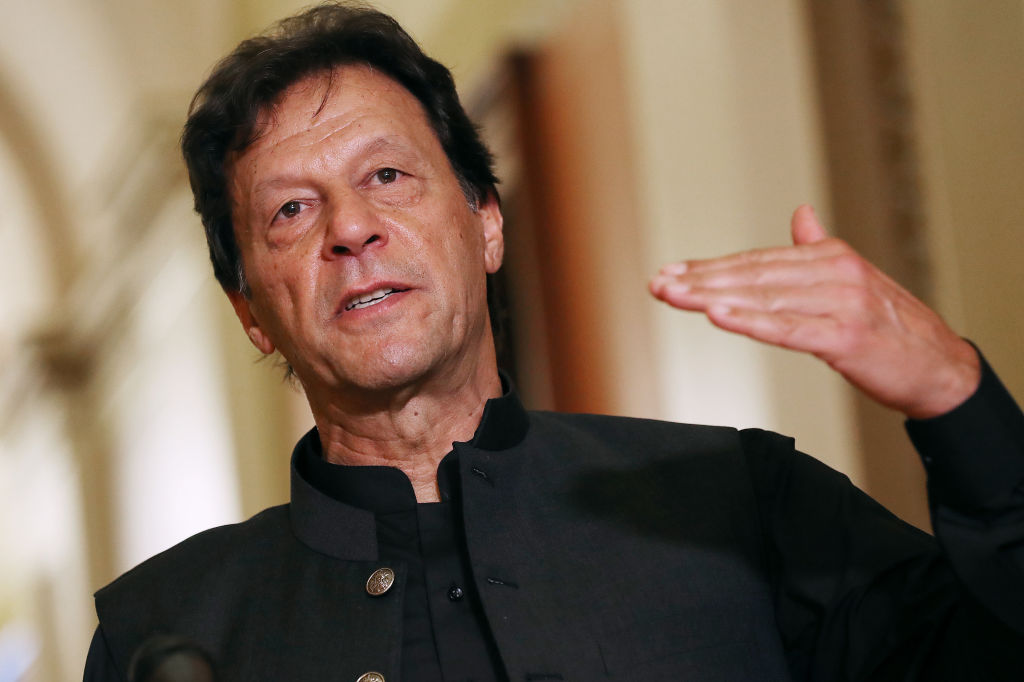ISLAMABAD — A Pakistani court on Tuesday sentenced former Prime Minister Imran Khan and one of his party deputies to 10 years in prison each, after finding them guilty of revealing official secrets. The verdict drew swift criticism from Khan’s followers.
It was also another blow to Khan, a former cricket star turned Islamist politician who was ousted in a no-confidence vote in Parliament in April 2022 and is currently serving a three-year prison sentence in a graft case.
[time-brightcove not-tgx=”true”]
According to Zulfiqar Bukhari, chief spokesman for Khan’s Pakistan Tehreek-e-Insaf party, or PTI, the verdict was announced by a special court set up at the prison in the garrison city of Rawalpindi, where Khan is held. Authorities said Khan and his deputy Shah Mahmood Qureshi, who also received a 10-year sentence, have the right to appeal Tuesday’s ruling in the case, popularly known as the Cipher.
Khan’s legal team was planning to appeal the conviction before the Islamabad High Court on Wednesday.
The ruling comes ahead of the Feb. 8 parliamentary elections in Pakistan—a vote Khan is barred from running in because of his previous criminal conviction.
Read More: Pakistan Can Keep Imran Khan Out of Power, but It Can’t Keep His Popularity Down
Although he is not on the ballot, Khan remains a potent political force because of his grassroots following and anti-establishment rhetoric. He says the legal cases against him were a plot to sideline him ahead of the vote.
Pakistan has seen violent demonstrations after Khan’s May 2023 arrest and authorities have cracked down on his supporters and party since then.
Pakistan’s human rights commission has said there is little chance of a free and fair parliamentary election next month because of “pre-poll rigging.” It also expressed concern about authorities rejecting the candidacies of Khan and senior figures from his party.
More From TIME
The Cipher case is one of more than 150 cases against Khan. Other charges range from contempt of court to terrorism and inciting violence.
In the Cipher case, Khan is alleged to have waved a confidential document—a classified cable—at a rally after he was toppled. The document has not been made public by either the government or Khan’s lawyers, but was apparently diplomatic correspondence between the Pakistani ambassador to Washington and the Ministry of Foreign Affairs in Islamabad.
During the speech, Khan claimed the document was proof he was being threatened and that his ouster was a U.S. conspiracy, allegedly executed by the military and the government in Pakistan. Washington and Pakistani officials have denied the claim.
Khan’s party said in a statement that it stands with Khan and Qureshi, “who defended Pakistan and stood for real independence.” PTI described the proceedings as a “sham trial” and said the judge did not even allow Khan and Qureshi’s lawyers to defend them.
However, the party asked his supporters to remain peaceful and not resort to violence, pending an appeal of the ruling through legal channels.
“We should harness and channel these energies for the polling day” on Feb. 8 to ensure that Khan’s candidates win the vote “with a thumping majority,” said Omar Ayub, a longtime Khan supporter. “PTI will continue its struggle to put Pakistan on a democratic path so that the supremacy of law and the constitution is ensured.” he said.
During the trial, the PTI feared Khan could be sentenced to death for treason. Khan has maintained his innocence and says he didn’t disclose the exact contents of the cable. Qureshi was accused of manipulating the contents of a diplomatic cable to gain political advantage.
Political analyst Muhammad Ali said the latest verdict was expected, for both Khan and his deputy. The two men, in his opinion, had “indeed damaged Pakistan’s diplomatic ties with the United States, and they also embarrassed the then-Pakistani Ambassador Asad Majeed to the United States,” Ali said.

